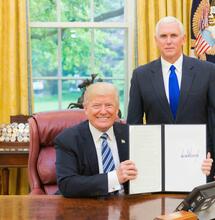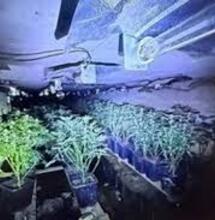Would an Independent Scotland Decriminalize Drugs?

In Scotland, the current set-up means the Scottish government deals with its own policing and addiction-treatment services, but the legal status of drugs is still a matter for the UK government.
In Scotland, the current set-up means the Scottish government deals with its own policing and addiction-treatment services, but the legal status of drugs is still a matter for the UK government.
However, this country might not be part of the UK for much longer; if there's a "yes" vote next week, independence will follow, and the Scottish Parliament will become accountable for policy in a range of new areas.
While there may have been a global trend toward relaxing drug laws as of late, the UK has been resolutely marching in the opposite direction. From the knee-jerk mephedrone ban to upping cannabis to a schedule-B drug. Then there was the bizarre prohibition of khat earlier this year. Government policy has often appeared to be more about placating the hang-'em-and-flog-'em brigade-the types who share hysterical reports about "what the teens are doing these days" on Facebook-than making any constructive efforts to reduce the potential harm drugs can cause.
So if the laws around narcotics do suddenly become the domain of the Scottish National Party, what are the chances of a more pragmatic, evidence-based approach? Could Scotland's broadly center-left consensus mean a future of decriminalized cannabis, with Scottish exporters standing at the UK border firing bricks of weed south into Berwick-upon-Tweed? Or would an independent government end up just as stubborn and regressive as the current British coalition?
Few would dispute that drugs are an issue in Scotland. Though we may finally have cast off Trainspotting-era perceptions of being a country populated exclusively by baby-killing heroin addicts, Scotland is still among the worst in the world for drug-related crime and deaths, and has been branded the narco "capital of Europe."
Campaigners for independence have aggressively focused on the failings of successive UK governments, particularly on emotive subjects like poverty and the rise of food banks. Yet drugs have barely featured in this narrative-presumably because they're a contentious topic and not exactly a vote winner among the general population. In fact, the Scottish government's extensive white paper contains little more than a paragraph on the subject, stating that full powers over classification will allow for "coherent" decisions to be made, with no real indication of what this might mean. When I asked if they could expand on this, a Scottish National Party spokesperson was unable to comment due to the referendum's "purdah" period, telling me to come back after the 18th.
Instead, I thought I'd look to the failures of the Westminster system to see what kind of mistakes an independent Scotland could learn from. Undoubtedly one of the UK's biggest blunders in this field was firing the head of one of their own scientific advisory bodies for pissing them off with some studiously researched facts that they weren't happy with.
Professor David Nutt was dismissed from his role as chair of the Advisory Council for Misuse of Drugs in 2009 after a fall-out with the then Labour government. Since then, he's helped to establish a new research body, written a book, and become the de facto face of drug reform in the UK. Earlier this year, Nutt delivered a lecture on the Isle of Man, which is legally independent of the UK and can make its own decisions on matters like drug policy. He argued that the island should exploit its status to pursue a more evidence-based approach, which could involve licensing weed for medicinal use, opening cannabis cafés, and becoming an offshore refuge for scientists wanting to carry out research inhibited by the UK's restrictive legislation.
The island's chief minister was initially receptive, but when I called his press office to see how things were progressing I didn't quite get the answer I'd expected. A spokesperson explained that the chief minister had merely been trying to provoke a debate by expressing his own opinion, with decriminalization not currently a legislative priority. "Cannabis cafés would be a step too far at this moment in time," they helpfully clarified.
So with hopes of an idyllic Isle of Man on the back burner for now, I asked Professor Nutt if Scotland could, in the event of a "yes" vote, use its independence to start taking steps towards decriminalization. Strangely enough, for a leading proponent of drug-policy reform, he seemed pretty amenable to the idea. "The UK government is the only one in the world to have taken backwards steps on drugs control in the last decade-the opposite of, say, the USA," he told me. "A free Scotland could be more sensible and reverse this regressive trend."
The gains of such a move, Nutt speculates, would be numerous: "Any country that developed a rational approach to drugs would benefit from reducing crime, improving health, and accelerating new research into medicines," he said.
Of course, how willing a future Scottish government would be to actually implement such measures is uncertain. Recently, Scottish First Minister Alex Salmond was pounced on during a BBC phone-in and asked if Scotland would follow the lead of Uruguay in legalizing cannabis. Tactfully, he replied that he's "rather sympathetic" to medicinal use, assuring listeners that an independent government would do a "good job" when it comes to deciding what is and isn't criminal.
While it would be premature for decriminalization campaigners to start firing up their victory vaporizers, his words were still enough for theScottish Mail on Sunday to splash with the revelation that the "drugs vote has swung to the nationalists."
The "drugs vote" may be disappointed yet, as the Scottish National Party's track record is mixed when it comes to this area of policy. Having long since abandoned the radical plans laid out in their pre-devolution 1997 manifesto, they've nonetheless won plaudits for their recovery-focused approach to tackling heroin addiction. A major step has been making the life-saving drug Naloxone, which can delay the effects of a heroin overdose, freely available. Conversely, they've rejected calls from their own advisers to introduce prescription heroin and supervised-injection rooms, proposals designed to reduce deaths and cut out criminal suppliers.
In March, a spokesperson cited ambiguous "ethical and moral issues" as the reason for their refusal, although fear of shouty headlines about free junk and shooting galleries on the National Health Service likely played its part, too. The Scottish government also proved they're just as susceptible as their Westminster rivals to talking total bullshit about drugs, when they joined in with the overblown hysteria around mephedrone a few years ago.
Drugs reform campaigners north of the border are cautious of how to view prospects for reform under independence. Jolene Crawford co-founded Transform Drug Policy Foundation Scotland after the death of a family member in 2009. She told me: "In the five years since we started the charity, there has been a massive global shift, but there's still a disconnect. Scotland could have an opportunity to be really transformative and to show the world that deregulation and control of drugs is a completely common sense thing. We could transform society if we were to implement even a few basic changes."
However, Jolene remains skeptical as to whether a new Scotland would really have the confidence to push through such radical changes to the drug laws. "There's still a fear for people about putting their head above the parapet," she said. "What we could hope is that if there's a government closer to home, they would be more in tune with specific Scottish issues. It would be a conversation that we could have in the future."
No one is expecting Scotland's first independent government to set about an immediate program of decriminalization. But as David Nutt says, it could yet present a chance to buck the UK's regressive trend on drug policy, opening a space for other views to be heard. As many of the "yes" campaigns arguments go, could things really be any worse than they already are?
https://news.vice.com/article/would-an-independent-scotland-decriminalize-drugs 14/09/2014



